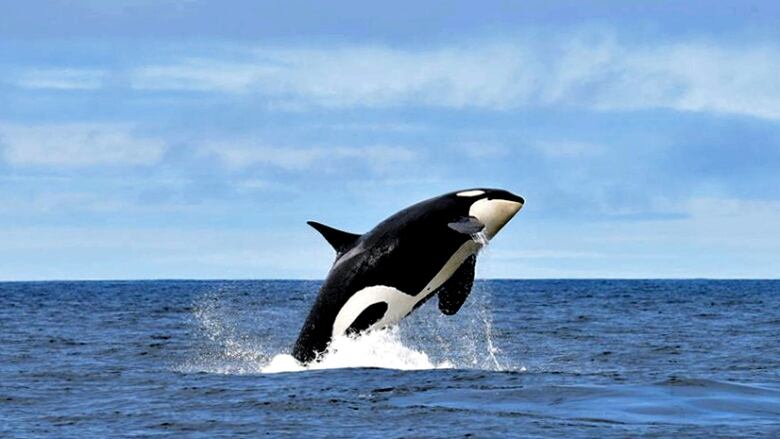Environmental groups file new challenge to Trans Mountain pipeline expansion approval
Motion argues that Ottawa isn't complying with responsibility to protect southern resident killer whales

The federal government failed to live up to its responsibility to protect B.C.'s endangered southern resident orcas when cabinet approved the Trans Mountain pipeline expansion, according to a new court action filed by environmental groups.
Ecojustice filed its latest motion on behalf of Raincoast Conservation Foundation and Living Oceans Society in the Federal Court of Appeal on Monday morning. The groups are asking for leave to appeal the pipeline expansion approval, marking the second time they'vegone to court over the issue.
Margot Venton, the nature program director for Ecojustice, told CBC that the challenge comes at a critical moment for the struggling whales.
"This caseis about whether the government has the power to justify pushing an endangered species closer toward extinction, which we say is a matter that really needs to be settled by the court," she said.
Just 76 killer whales remain in the southern resident population, and environmentalists argue an increase in tanker traffic connected to the pipeline expansion, as well as the danger of an oil spill, would put the animals at greater risk of extinction.
A report released this year by the National Energy Board backed up those concerns, suggesting the project would have "significant adverse effects" on the whales.
Ventonsaid the conservation organizations are also concerned about the rise in carbon dioxide emissions that will follow the pipeline's expansion, including the emissions that will come from extracting the oil from Alberta's oilsands, transporting it, andburning the fuel overseas.
The Tsleil-Waututh Nation has also indicated it will file an appeal of the June 18 cabinet approval.
The groups have been successful before at convincing the court to overturn cabinet approval of the pipeline expansion.
Last summer, the court ruled that cabinet had failed to comply with the Species at Risk Act and did not properly consult with First Nations.
Find out more about the future of the southern resident killer whales in a new CBC British Columbiapodcast. The first episode ofKillers: J Pod on the Brink, hosted by Gloria Macarenko, is released July 18.You cansubscribe nowwherever you get yourpodcasts.












_(720p).jpg)


 OFFICIAL HD MUSIC VIDEO.jpg)
.jpg)



























































































